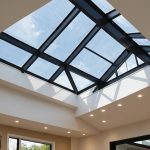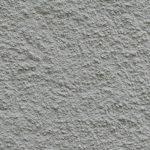Financial Benefits of Installing a Home Swimming Pool
Adding a home swimming pool often positively influences property value appreciation. Studies consistently show that a well-designed pool can boost a home’s market value by approximately 7% to 15%, depending on location and pool type. This means homeowners can see a tangible financial benefit through increased resale value.
Experts highlight that the financial benefits of home pools extend beyond mere aesthetics. Pools appeal to buyers seeking lifestyle enhancements, which translates into stronger offers and quicker sales in competitive markets. However, the return on investment varies; in warm climates where pools are attractive year-round, the value increase tends to be higher than in colder regions.
Have you seen this : How Can You Transform Your Backyard into a Luxury Oasis?
A strategic pool installation, designed to complement home size and style, maximizes value. Conversely, an ill-fitted or poorly maintained pool might deter buyers. Therefore, understanding local market preferences and aligning pool features accordingly is essential for capitalizing on these financial benefits of home pools. Homeowners should weigh these factors carefully to ensure their investment yields meaningful gains.
Aesthetic Impact and Buyer Appeal of Swimming Pools
A home swimming pool greatly enhances home attractiveness with swimming pools, serving as a major draw for potential buyers. The aesthetic benefits of pools go beyond simple beauty; they create an inviting outdoor space that elevates lifestyle perception. Buyers often associate pools with luxury, relaxation, and family fun, which strengthens buyer appeal home pools offer in competitive markets.
Topic to read : Essential Guide to Choosing the Perfect Pool Slide for Your UK Home: Key Considerations
How do pools enhance curb appeal? Visually, a well-maintained swimming pool complements landscaping and architecture, offering a vibrant focal point. This immediately boosts home attractiveness with swimming pools, making properties stand out. Real estate experts agree that the buyer appeal home pools bring can expedite sales, especially in warmer climates where outdoor living is prioritized.
The aesthetic benefits of pools often translate to higher offers. When buyers envision entertaining guests or enjoying summer days, the property gains emotional value. This emotional connection is crucial. In many cases, the presence of a pool creates a lifestyle image that buyers are willing to pay a premium for, directly influencing the home’s market competitiveness and perceived worth.
Comparing Types of Home Swimming Pools and Their Value Impact
Choosing the right types of home swimming pools significantly affects pool type and home value. Generally, inground pools provide a higher return on investment compared to above-ground pools. Why? Inground pools are perceived as permanent, luxurious additions, often boosting home swimming pool property value more effectively. Above-ground pools, while affordable and easier to install, typically offer limited impact on property value appreciation.
Material and size also matter. Concrete and fiberglass inground pools usually add more value than vinyl liners due to durability and aesthetics. Larger pools fitting the home’s scale tend to attract buyers, enhancing financial benefits of home pools by matching lifestyle expectations without overwhelming the property.
A detailed case study shows properties with inground fiberglass pools gained 9%-14% in market value, whereas those with above-ground pools saw minimal gains. Experts recommend aligning pool choice with long-term value goals: for lasting appreciation, inground pools—with thoughtful design—are preferred to maximize home swimming pool property value effectively.
Financial Benefits of Installing a Home Swimming Pool
A home swimming pool property value can increase significantly with the right installation. On average, homes with pools experience a property value appreciation ranging from 7% to 15%, depending largely on factors like location and pool quality. Experts emphasize that the financial benefits of home pools come not only from higher resale prices but also from enhanced market competitiveness.
Why does a pool add value? Pools symbolize luxury and a desirable lifestyle. Buyers often see them as a long-term asset, which enhances offers and shortens time on market. Real estate professionals confirm that in warmer climates, where outdoor living is prioritized, pools deliver stronger returns on investment. Conversely, in cooler areas, the financial benefits might be less pronounced but still notable when aligned with buyer preferences.
Moreover, the cost-to-value ratio matters. A well-designed pool that suits the home size and neighborhood standards ensures better property value appreciation. Experts advise homeowners to consider local market conditions and pool features carefully to maximize the financial benefits of home pools effectively.
Financial Benefits of Installing a Home Swimming Pool
A home swimming pool property value often sees notable growth after installation. On average, properties with pools experience a property value appreciation of 7% to 15%, a significant boost in competitive markets. The financial benefits of home pools stem mainly from their ability to make a property more attractive and luxurious, increasing buyer interest and willingness to pay a premium.
Experts emphasize that while a pool enhances appeal, its impact on home swimming pool property value depends on design, size, and regional demand. For instance, a well-integrated inground pool typically offers better returns than temporary or above-ground options. This aligns with market data showing stronger appreciation in warmer climates where outdoor living is valued year-round.
Importantly, real estate professionals advise weighing installation costs against potential property value appreciation. Proper planning, including choosing the right pool size and features, maximizes the financial benefits of home pools. Overall, a thoughtfully executed pool project can provide solid return on investment, elevating both lifestyle and resale prospects.
Financial Benefits of Installing a Home Swimming Pool
Installing a home swimming pool can significantly boost a property’s market desirability, leading to measurable property value appreciation. On average, homes with pools see an increase ranging between 7% and 15%, directly reflecting the financial benefits of home pools. But how exactly does a pool contribute to this uplift?
Pools represent more than mere recreational amenities; they are perceived by buyers as symbols of luxury and enhanced lifestyle. This perception increases buyer interest, often translating into stronger offers and faster sales. According to expert analyses, the home swimming pool property value improvement depends largely on factors such as pool design, size, and regional demand.
Return on investment varies, but strategically installed pools aligned with neighborhood standards typically yield better long-term gains. For instance, an inground pool tailored in scale and aesthetics boosts appeal and sustains higher value growth. Experts also caution that overlooking quality or installing mismatched pools could reduce the expected financial benefits of home pools. Therefore, understanding market preferences alongside thoughtful planning is essential for homeowners seeking to maximize property value appreciation through pool additions.
Financial Benefits of Installing a Home Swimming Pool
Adding a home swimming pool consistently results in notable property value appreciation, commonly increasing a home’s market value by 7% to 15%. This boost is largely due to pools enhancing lifestyle appeal, which influences buyer interest and willingness to pay premiums. How exactly do pools affect property values? By transforming ordinary outdoor spaces into luxury environments, they elevate the perceived worth of a home, making it more competitive on the market.
Experts often weigh in on the financial benefits of home pools, highlighting that return on investment varies with climate, pool quality, and local demand. In warm regions, pools tend to generate stronger appreciation, as outdoor living is in high demand year-round. Conversely, cooler climates see more modest gains, but pools still contribute positively when aligned with market preferences.
Strategic installation is critical. Choosing the right size, design, and materials enhances the home swimming pool property value and maximizes resale potential. Proper planning ensures the costs align with expected appreciation, making the pool a valuable asset rather than a financial burden. Ultimately, a thoughtfully executed pool installation delivers measurable financial benefits of home pools while supporting sustained property value appreciation.




